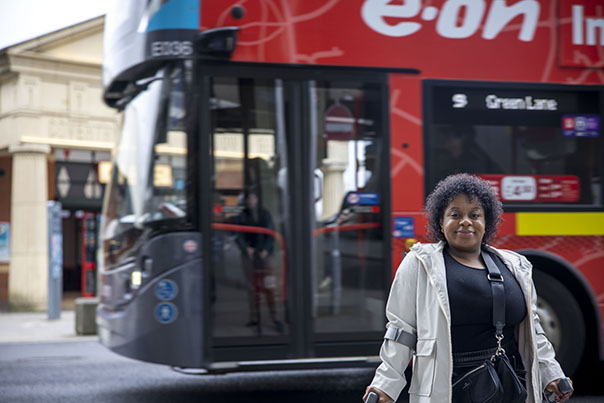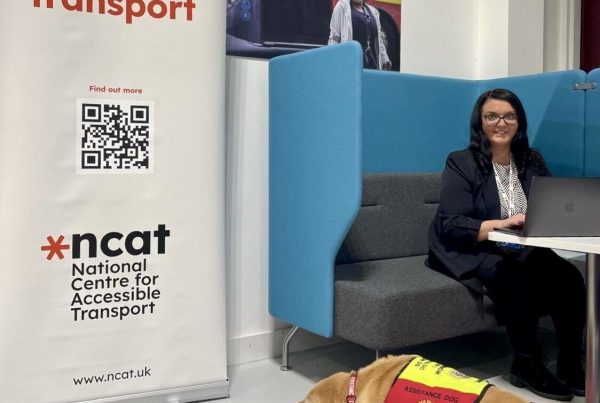
The Accessible Transport Policy Commission hosted another Roundtable Event in the House of Lords last month, this time the new Bus Services Bill was on the agenda.
Commission Chair, Baroness Tanni Grey-Thompson opened the event by introducing Dr Arun Ulahannan to share the latest research findings from ncat.
This included:
- Sharing statistics from our Transport Barriers Database reflecting the common barriers experienced by disabled people when using buses across the UK. For example, 44% of those surveyed identified a lack of step free access on and off the vehicle as a significant barrier on buses.
- Highlighting the 59 bus related resources available together in our Resource Collection across a mix of policy and regulation; evaluation and learning; research; and technical documentation.
- Promoting Living Options and React Accessibility as the two Scaling Innovation( LINK) funded projects concerned with improving accessibility on buses.
In addition, Ulahannan talked about his work as lead researcher for ‘The Barriers to Streetscape Access’ report.
Discussion then moved onto the work that transport providers are currently doing to make their services more accessible to disabled people. Victoria Garcia and Ed Wills from Brighton and Hove Buses and Metrobus led the way with a presentation on ‘Making Bus Services Accessible’.
Perspectives were then shared from bus sector representatives on the challenges and opportunities ahead on bus reform, before discussion was opened up to considering the strengths, weaknesses and omissions of the Bill.
The group identified:
- The need to introduce national standards for bus stops and buses to improve accessibility.
- Bus drivers are the sole point of contact for passengers and play a crucial role in ensuring accessibility.
- Mandatory driver training is essential but requires better tracking and enforcement.
- Bus designs must be made with accessibility in mind, as buses remain in service for 25-30 years.
- More coordinated and holistic approaches to accessibility are needed across buses, trains, and other public transport.
The Bus Services Bill aims to fulfil the Labour Party’s manifesto commitment to give local authorities in England control over bus services. It also contains a range of measures to improve the quality of bus services including in relation to accessibility. Some parts of the Bill would become law in Wales and Scotland as well as England.
There are four main parts of the Bill that address accessibility:
- “Requirements enabling travel by persons with disabilities
- “Bus network accessibility plans”
- “Safety and accessibility of stopping places”
- “Training about disability”
The Accessible Transport Policy Commission holds meetings in Parliament to bring together Parliamentarians, disabled people, transport professionals and policymakers from the national, regional, local and devolved levels of government to improve public policies and everyday practices. It does this by applying evidence and insights from ncat and a wide range of other experts through roundtable discussions, research symposiums and cross-sector meetings.
In attendance at the Roundtable were representatives from Access Matters, KPMG, Bus Users UK, Nottingham City Transport, Alexander Dennis, Motability Foundation, First Bus, Surrey County Council, TFL, Railway Industry Association, Transport East, Transport For All, Thomas Pocklington Trust, Be First London, Hereward College, Confederation of Passenger Transport, Possability People, Surrey Coalition of Disabled People, UK Coach Operators Association, BSI Group, Lothian Buses, Local Government Association, University College London, Site Loss Councils, Community Transport Association, and Brighton and Hove Buses and Metrobus.


